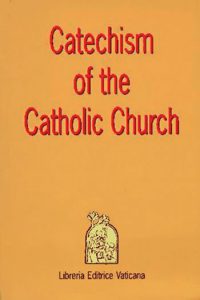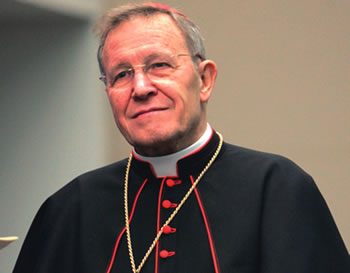The Question of Divorce and Remarriage
Why Not Dispensation?
Part I
On Monday 23 February 2015 the Old Testament reading for the day included:
Moses told [all the Lord had told him] to the Israelites; but they would not listen to Moses, because of their broken spirit and their cruel slavery. Then the Lord spoke to Moses, “Go and tell Pharaoh king of Egypt to let the Israelites go out of his land.” But Moses spoke to the Lord, “The Israelites have not listened to me; how then shall Pharaoh listen to me, poor speaker that I am?” Thus the Lord spoke to Moses and Aaron, and gave them orders regarding the Israelites and Pharaoh king of Egypt, charging them to free the Israelites from the land of Egypt. (Ex 6:9-13)
Just three days later the 2nd Reading of the Day urged that we be shepherds of God’s people:
When they turn away from the right path and wander, we must lead them back, and rejoice at their return, welcoming them back into the company of those who lead good and holy lives. (1)
I had been reading the Lineamenta for the Assembly of Bishops called to discuss the Vocation and Mission of the Family in the Church and Contemporary World; this discussion paper had been distributed world-wide for review and comment and I was struck by the aptness of the excerpts for the task in hand. They accurately encapsulate the circumstances of the divorced and/or remarried: for their spirits have been broken. Because they are enslaved by their situation they are unable to listen to, let alone hear, God’s message for them coming from the Church. I could not but sense that the Synod of Bishops is charged with liberating these people just as Moses and Aaron were commanded to seek the freedom of the Israelites.
When the document arrived I invited a number of other parishioners to join me in this scrutiny and thirteen (2) met with me to study the questionnaire which came with the Lineamenta and attempted to answer at least some of the questions. It quickly became apparent that we needed to come to a deeper understanding of the topics covered by the work of the Extraordinary General Assembly: any response based purely on hearsay and mirroring our family experiences would be patently inadequate.
None of us had read Instrumentum Laboris, issued for the Extraordinary General Assembly and copies were obtained. Nor had we heard of Cardinal Kasper’s precursory presentation to the Bishops addressing The Gospel of the Family: accordingly we accessed the book he subsequently published. (3) Research pointed toward still other reports and documents, among which was one particular book: (4) this took issue with Cardinal Kasper’s thinking but was reviewed to maintain objectivity.
We concluded that the overall subject matter was too broad for us to address befittingly in the time allowed but our research supported the formulation of a response which concentrated on matters which were significant for the group. With barely one month available for our project we could pay only cursory attention to much of the document as we concentrated on the question of Divorce and Remarriage.
 Marriage without adequate preparation to give the parties a sound understanding of the nature of the Sacrament will inevitably result in them viewing the marriage state as being purely secular. Practising Catholic couples may already have received a good appreciation of marriage and so will generally be well disposed to further instruction which advances their faith journey. However non-practising couples, mixed Christian faith couples and couples where one party has no faith at all present special challenges. Some may be quite willing to undertake a faith journey to marriage while others have absolutely no interest in any faith at all and only present themselves for instructions because they are required to do so before the local Church will celebrate the Sacrament. It is to be hoped that the Catholic parties, at least, gain further insights and come to recognise that marriage will eventually confront them with real difficulties.
Marriage without adequate preparation to give the parties a sound understanding of the nature of the Sacrament will inevitably result in them viewing the marriage state as being purely secular. Practising Catholic couples may already have received a good appreciation of marriage and so will generally be well disposed to further instruction which advances their faith journey. However non-practising couples, mixed Christian faith couples and couples where one party has no faith at all present special challenges. Some may be quite willing to undertake a faith journey to marriage while others have absolutely no interest in any faith at all and only present themselves for instructions because they are required to do so before the local Church will celebrate the Sacrament. It is to be hoped that the Catholic parties, at least, gain further insights and come to recognise that marriage will eventually confront them with real difficulties.
The marriage covenant depends on two promises; one made by a wife to her husband and matched by the second which is made by a husband to his wife. The only expectation within each covenant is the making and keeping of the other covenant; there can be no expectation of any “consideration” such as that which is integral to a contract. The sacramental covenant of marriage evokes the covenants which God established throughout the Old Testament and which Jesus upgraded to include Gentile peoples. These covenantal understandings were identified by the Bishops of Vatican II when they declared that Matrimony symbolised the unity and faithful love between Christ and the Church. (5)
Covenant is the essential ingredient of God’s relationship with his people, one which is well recognised in his written word. In the NRSV Bible the expression is used 340 times, 39 being in the New Testament.
Marriage covenants are mirrors of the divine covenants with their sacramental attributes coming from the blessings and graces given by God. In accordance with Jesus’ teaching (cf Mt 19:1-9; Mk 10:2-9), the Magisterium teaches that marriage is indissoluble. (6) After all, the union of a woman and a man in marriage is akin to the union of Christ and the Church.
It gives spouses the grace to love each other with the love with which Christ has loved his Church; the grace of the sacrament thus perfects the human love of the spouses, strengthens their indissoluble unity, and sanctifies them on the way to eternal life (cf Council of Trent: DS 1799). (7)
Each marriage establishes a new family unit which becomes part of the very foundation of both Church and Society. However it is clear that the family unit is under attack. As Pope Francis wrote:
The family is experiencing a profound cultural crisis, as are all communities and social bonds. In the case of the family, the weakening of these bonds is particularly serious because the family is the fundamental cell of society. (8)
Marriage is built on the love of a woman and a man given freely to each other. Commencing before marriage and continuing on afterwards, this love grows steadily through several stages; attraction, friendship, companionship, sexual desire (being “in love”) and finally to a love which advances and ripens into a desire for the all-inclusive well-being of the other. This growth in love underpins the Church in its role in Society.
“By reason of their state in life and of their order, [Christian spouses] have their own special gifts in the People of God.” (Lumen Gentium 11§2) This grace proper to the sacrament of Matrimony is intended to perfect the couple’s love and to strengthen their indissoluble unity. By this grace they “help one another to attain holiness in their married life and in welcoming and educating their children.” (9)


 Entries(RSS)
Entries(RSS)